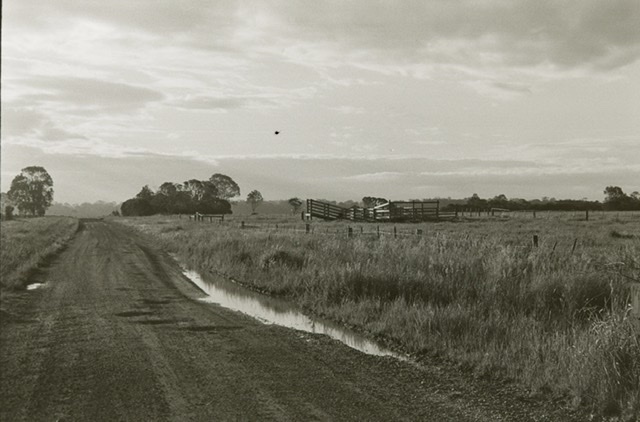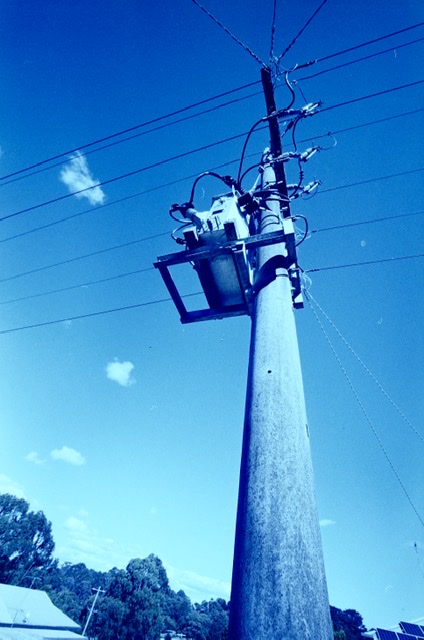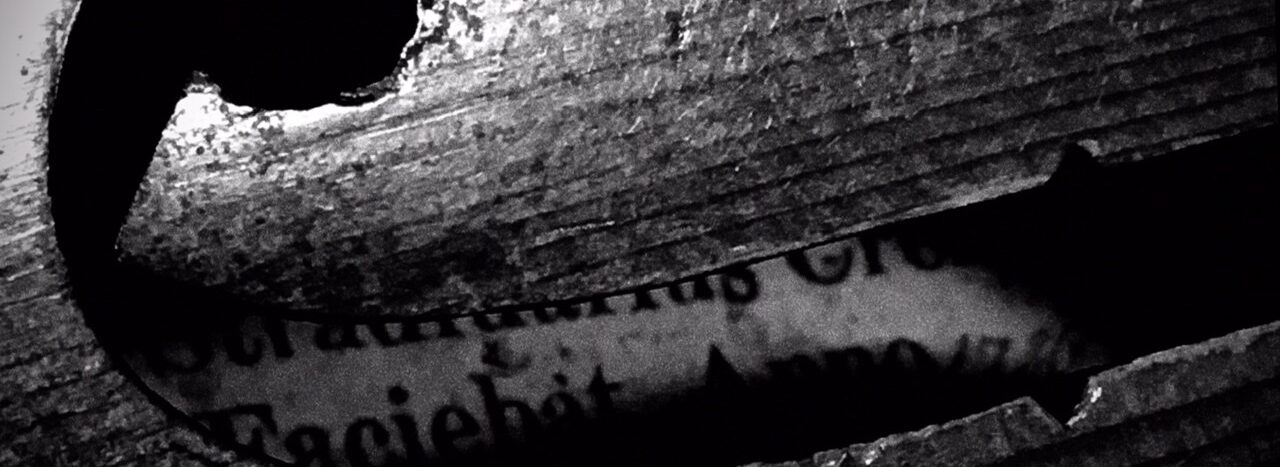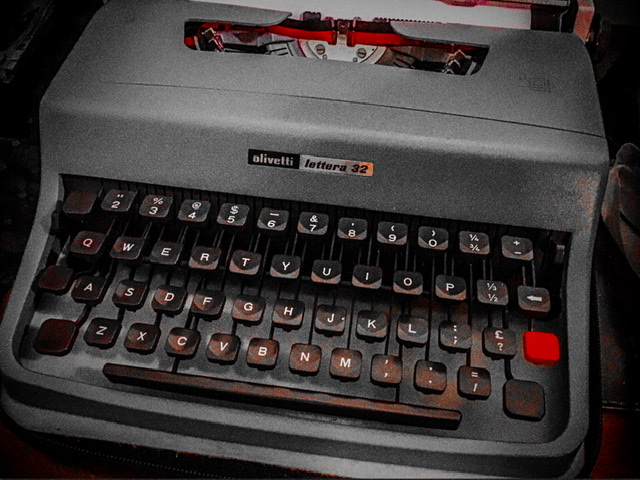chapter one – a serpent in the dust
This is a memory. I may tell you about it as if you were my close and familiar companion, cognisant of all the guilts and rivulets of my inmost thoughts. Forgive me if I berate you, as I berate myself. We are on the shore, the cusp. Take off your shoes, the sand is a hundred million years of piscean regurgitation, but, for that brute alchemy, quite pure; walk with me awhile.
When this town was new, fat off good rivers, wool and wheat, they built a brick factory and made red bricks of the ochre-red clay of the southern fields to build mansions, town halls, courthouses, prisons. Later, when the brick factory was nothing but a redder stain and two crippled towers canted precariously on the horizon, they built less grand buildings, of clapboard and asbestos sheets, grey and pastel blue and pink, fading into the sunset, for we lesser, sunset people, in the lee of the slaughter yards, in the shadow of those chimneys, curtailed by the mazed angularity of new bitumen and concrete culverts.
How they built the towers, the brick factory, of seemingly the same red bricks that it disgorged from beehive kilns, I wondered, but never understood. A monstrous town, under an obdurate sun; it ate earth and people, and vomited out itself.
One of those dust devil days, you know the ones, where they rise spontaneously up out of the brick and scree littered vacant lots, whip grit like sunlight into your mouth and eyes, blinking and sputtering, as quickly gone.
“Hey, look,” I said, to the craning ghost gums, to no one in particular. It was the colour of watered down honey, interleaved with the fading, dismayed black of dawn, scything determinedly in that sideways way along the bright, mercenary vee of the new-cast gutter.
Serpenting along, I thought. As if the road were its mother.
It was a matter of a few lengthened steps to overtake, for my shadow to bestride it. I scrabbled a red plastic lunch box from my side-slung canvas satchel, peeled off the translucent yellow lid. Flung away a gleaming red apple, the lank slather of of a mortadella sandwich, into the slaughterman’s field, a prize for sleek crows or broken horses, and with one sure but careful encirclement of the snake’s nape, scooped it.
“There is no one left in the world,” it said, looking at me in wise chagrin, tongue flickering over river-pebbled lips, peering from below the half closed lid.
“That’s a nonsense,” I replied, bringing the box closer, to better see the needling, night-lit eyes. “I can see traffic, ahead, I can see the shapes of people.”
“Shapes only, you have stepped sideways. Let me go, and step back. It smells like death and mustard in here. Lettuce and mayonnaise. Pah. Let me go. My mother will be mad.”
“You cost me an apple. And a sandwich that my mother made. I am taking you for show and tell. I shone my shoes. Though they hurt. I shone them.”
“Let me go. My mother made the world. I will give you a pepper tree. I will tell the sun my father to calm his fury.”
“Shhhhhh. I don’t like pepper.” I closed the lid, and held the box close to my chest, and late, ran for school, the still low morning sun still blazing across the watery hide of the Goonoo Goonoo road, the cattle trucks gnashing chrome bright masks, I flinging myself sideways from mouth-wide wheels, almost invisible, into the grit and talc of disgorged brick dust that snaked the verge. I thought; as if that hard, fixed river had on each side twinned rivers moving with that slow remora determination.
Where I fled, none saw; the snake in the box striking ineffectually with upraised perfect fangs against the slick, impenetrable surface, at each enfilading scatter of my heart.
“What sort of child are you?” Mrs Smith asked. I could see in the ghost against the distant dun and blue beyond the window glass, tears had turned the dust on my face into a warning. A claw scraped tiger’s mask.
She was the shape of an old and I’ll-manicured rose. Leaves long curled to husks. Obsidian chips for eyes. Her mouth a long healed wound. Gnarled, grained, bereft, for fast fingers, a cat’s knotted whip cords. I heard her thinking, “How does one beat such a child?”
“ Sorry, Miss. Fell over.” Safely at school, amongst the fast eroding bricks, the colour of broken bottles and dried blood, embedded in the alien surface, like hard watchful eyes, glassy, concave inclusions, people, buildings, the town, could, almost, see me again.
“The Vikings used ice for windows,” she was saying, with the stridency of fraught but determined certitude. “There are runic marks on the rocks in Sydney Cove, so it is thought they came here long before Captain Cook.”
“That’s a nonsense, Miss.” it was the favourite thing I had learned in school; that one person’s harboured absolutes were another’s nonsense. That repeating the phrase, so often repeated to me, was a way of cutting through the obstinate veneer. On the desk, the snake in the lunch box said, “Bravissimo.”
“Shhhhh!” I said, putting my hand on the lid, the shadowed Ouroboros shape circling within.
“If you are eating in class, I expect you have enough for everyone.”
“No, Miss.”
“Let’s see what you do have, then.” She came striding forward, like a cavalry charge. Cannonade heels, eyes like Medusa, hair flailing, grabbed the box, held it down against the desk, perhaps, in case it escaped. With that invasive, indrawn vacuum sound, of necessity’s abhorrent breath, tore up the lid.
She yelped. Quite empty. Marks like crimson eyes on the soft fore edge of her wrist.
“You stabbed me with a pencil.” Outrage, incredulous. Her mouth moving with a marionette’s jolting, imprecise stutter.
“I’ll die of lead poisoning!”
“That’s a nonsense, Miss.”
The slap came with that God-like fury. Tears, laughter, silence sting. Suddenly sideways through the world. I closed up the box and ran.
By the ordure grimed trap of the slaughter yard’s mazy railed marshalling corral, my chest caught me up in a demand of roaring. Somewhere I had thrown away my shoes. The road was following me. I could see it in the distance, raising up, writhing. The snake in the box against my chest said, “Time to go home, our mother’s calling.”
“I killed her. Mrs Smith. I can never go home.”
“You didn’t kill her. She has just about as much life as she always had. You stepped sideways, little brother. Think of it as a dance. You cannot unstep. Here, I’m hungry. Give me your wrist.”
It suckled for a while.
After, a sate purchase on its lips, it sidled into the yard’s litter of bones and Paterson’s Curse. An apple core’s mangled hourglass. Against my forehead’s irrationed heat, through dry weeds, a breeze still singing.
Before vanishing in sand and scree, the serpent looked back, over broad imagined shoulders, and whispered – something I did not quite hear – something like a winter wind caught in a chimney’s hollow breast.
I plunged my head into the algal stain of a half-barrel concrete trough, mica flickering on the surface, and underneath, thinking; here is where the condemned drink. Shoulders, collar wet. It was cooling, nevertheless.
Heading home. A moth abroad, confused by my moon brightness, deflected from my chest. Fell with bent wings to rust borne earth. Stunned or dead. Misadventure, I thought; am I then an act of god? The penultimate act.
In the near distance are the hunched shapes of clapboard and asbestos houses. Somewhere beyond, the desperate, leaning shards of red brick.
I think; the world is stretched thin. There are monsters. I am at the precipice. About to fall.
The world here is desperately empty.

chapter 2 – mother
Chapter Two (Mother)
It was almost ten years later I was beaten to death and my body thrown off a cliff into a debris littered gully, to lie in the moonless dark awhile hidden amongst the scree and scrub, the carapaces of decaying cars and the blistered cocoons of mouldering floral-patterned mattresses, before I was dragged back up through glaring streetlights and brutally resurrected. Afterwards, I was neither here nor there, quasi modo for a while. Quite monstrous. Then, emerging from all outward signs of my destruction, nevertheless, a different shape.
How that later blasphemy connects with this, I cannot tell you exactly. Only that it does, in the way wing beats propel the bird, and horses balk at barbed fences, or a storm demands the unravelling of a tethered kite, and sunshine evaporates puddles after, revealing gravel, and broken glass, and in the worn, degraded screed of tyre tracks, unremarked departures.
You doubt. This is not a novel that through glib voicelessness asks you to subsume consciousness, to suspend disbelief. Nor is it a biograph, dressed in sheep’s clothes, inveigling at the door of veracity. Because this child is a cur, not a pig, I have come to blow your house down. Here each moment makes its own demands. Think instead; these are the rifled reflections of my life passing before my inner eye at the moments of my deaths, those moments, that passage, deranged like an overturned display of photographs and tourist postcards, lurid corals now in fragmentary montage with stark monochrome and melancholic sepia. It is not for you to know which parts of my story are true; that some are, must suffice. As to the rest, if they are embellished, heightened, confabulated, extemporised, recast, concocted, nevertheless; there is a kernel, and here, I give you the bask and threat and spill of the living tree.
It is only from the relative safety of distance that childhood is lustrous, the deep thrall of ruby glass. We see now with envy, forgetting, the same fracture that makes rubies red, makes emeralds green. Which is to simply say; each image has its own truth.
There was a locust on the screen door. That dun bright plague verdure almost hidden against the dulled mesh and curlicues of blighted aluminium silver. I chew the word like an incantation. Like they say on TV. A-loomi-num – a-loo-mini-yum. A spell to ease the hinges, to silence the world. At the creak and shudder, the locust whirrs, nips at my wrist, my fingers curl tighter on the lever, in a blur of lace wings and bent-back, serrated limbs, fled, on the currents of its own precarious hunger.
The house, in vacant summer’s middling morning heat has the heady, intoxicating smell of almost burnt meat and fresh lead paint. It seems quite new, at what I imagine is a secret women’s, hour. Our invasive racket reduced to temple quiet steps. A scent of recently turned earth rising from beneath. Mother is all these things. She is honeysuckle and green, the ozone smell of Fabulon, and the rivery murk of silk-slick polyester. I come, at this hour, a stranger, an alien, an interloper. Smelling of tears and death, and that dusty, serpentine stench. With the bang of the screen behind me, all peace gone.
But – she knows already. She is cradling the phone, chin and shoulder, sotto voce chirping, hands wringing and smoothing a cloth, the red gone to pink, as if she could not help but in turns kill and revive a fear paralysed animal. Involuntarily knuckling for the warning of its heartbeat. The start and scrabble of its flailing claws. A voice echoed louder against pristine walls. Full of the static of hard, accusatory words. Calmed again, with that deflating hiss. Put it to rest.
Mother is brown and creased and bent and patient as a willow. I suppose sometimes I am the bird in her hair, at others the creek in skirl and babble below her feet. Sometimes she lashes, sometimes she scoops me up in tendril branches. Now she is somewhere between a cigarette and a sigh. I am a chore. There is nothing to say. I can only slowly cry. She folds me up like linen. Carefully, with a whetted thumb, smooths and creases the edges. Puts me in the cupboard with the sheets and towels. I imagine a tomb for pharaoh. Forty four thread count, a smell in the semi-dark almost like dried flowers. I will be found with the moths, a desiccated husk, heart still barely thrumming, in a thousand aching years.
The telephone again. The distant, watery voice. “They say he’s killed his teacher. I don’t know. With a pencil or with a snake. I know. I’ve put him in the hall cupboard. Yes. The police are coming.”
Sleep is an anvil, just above my head. You think a cartoon, but this is a serious weight. I will be crushed, my skull caved in, my chest collapsed until I look like the half-constructed Opera House, exhaling like arias the unsung deaths of a thousand cockatoo roadkills.
I imagine the bird, a skeletal machine, pushing itself up, shedding earth and sea, the halo bright feathers underneath, rending trains and ferries in iron talons, toppling buildings with the beat of its wings, a glance of that piercing eye, then gone into the sun. After, by whatever unconscious process the crisis is resolved, I wake again.
There is something incredibly freeing in the the betrayal by a parent, of their child, to authority, to the state. However unintentional. Regardless of whatever sense of duty, of obligation to the rule of civil society, some bonds must be held inviolate. When they are not, like a kite that has unspooled and escaped, spun through suddenly welt fingers, you are made an orphan, beyond tempor, freed from all but the most tenuous bonds to both.
Mother’s snare drum pacing. The police cars have that sly sound, that Judas hush of a loose piece of rope, the grit of it, not yet done with flailing, an encroaching sea over the corrugations of a too resilient sand, the drag and drown of it. The screech of doors with that half-full barrel sound of small animals drowning. I unbury myself, push the closet doors, peek out the guillotining crack of light, the magnetic catch unclicks. There she is again, only now the size of legend, the bands of liquorice black and acid drop yellow, the polished sandstone grain, softly glowing, coming down the hall with the cool, irrevocable purpose of water.
“Better follow me,” the snake says, passing with the slightest camber to the lionesque weight of her head, an insouciant flick of her tongue, the shape of a lipless smile, passing. I imagine one day she shall show me her fangs, but not today. Today I follow.
Quickly down the honey coloured floorboards. Somehow, in her path, the hard soles of my shoes silent. The bleach and lemon powder scent of the laundry, the serpentine entanglement of green and red tiles, through the oil slick foam on the surface of the overfilling sink, then those garbled, demanding voices, cannonade footsteps, I am jackknifing through the window, hear the oofed cries, the tackle-crash of pursuing men falling on the confined and slippy tiles in the room behind me.
A whir of dragonflies around the moss and fylfot shadows of the drain. Terracotta, cement and pvc. Alien white gravel, in slender spindles, the weeds pushing through. The fresh cut smell of grass, an orchestral crescendo, has an air of torture, an air of hobbled freedom. The universal constant, the throat and monoxide stench of an unseen lawnmower. She is slipping through a V gap in the weathered to silver crenellations of the post and paling fence at the back of the yard, under the lower beam, shrinking as she does.
“Make yourself smaller,” she says. And I do.
Lionel is there. On the other side. A knot of a boy. That cockatoo smile. He has pushed the Victa in a spiral, outward from the central eye of the sea blue and silver above ground pool in the middle of the yard. The pulsing, exhalations it makes. Vinyl and chlorine.
“Hey,” he says.
She is gone. I see the hint of her down the driveway at the side of his house. Narrow, horizontal, mustard coloured boards. Clinker built, as if a house were sometimes a ship. In familiar conspiracy, I raise a finger to my lips. The last, chugging whirl of the mower blades as Lionel throttles the thing down catches a stray white pebble, flings it with a mosquito whir, with the surgical precision of a snakebite sting it cuts through shirt, to rib, deflects to the suckling pale softness of my inner arm. Blood wells like a paint stroke.
Lionel raises a cupped hand to his mouth. In the sudden, consuming silence, I again gesture, two fingers to closed lips, and run for the side of the yard, the carport, past the decrepit hulk of Lionel’s father’s station-wagon. We have spent long afternoons in the tobacco ash and oil stink of it driving to invisible places. A glance back and with two gestures he is making the secret signs for “tower – later”.
I nod acknowledgement.
From there the street opens into the tumult no man’s land of partially constructed houses. Trenches and piles of sand and the yellow pine jigsaw of naked framework. Some, skeletal and carcass still. Others with crews clambering over, as if, rather than building, they were ants or carrion birds, stripping away swathes of sky from behemoths to reveal the underlying bone, in a kind of irreversible decay, listening to the gravel shouts and magpie trills of their tinpot radios as they work. The red towers of the brickworks above this jagged horizon in the far distance beyond. Which seemed, in this moment, nursing wounds and strangely free, as good a place as any to disappear.


